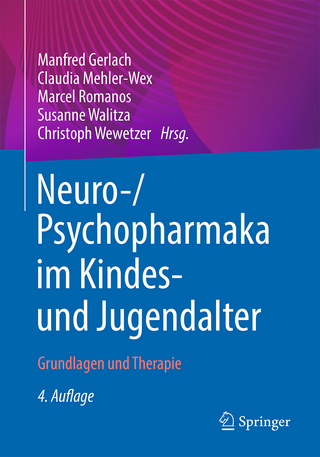
The Arts and The Brain
Academic Press Inc (Verlag)
978-0-12-813981-3 (ISBN)
Dr. Julia F. Christensen is a postdoctoral Fellow of the B.I.A.S. project (NOMIS foundation) at the Warburg Institute, University of London, and a Newton International Research Fellow Alumni (British Academy) in the Cognitive Neuroscience Research Unit (CNRU) and the Autism Research Group (ARG) at the Psychology Department (City, University of London). She is also an honorary member of the Institute of Cognitive Neuroscience (University College London; UCL). Her current work explores the neural underpinnings of emotional expertise in dance. In this approach she works with dancers and other artists as participants to uncover the neurocognitive mechanisms that make these groups of people so highly emotionally sensitive. She has a strong interest in dance herself as she trained as a professional dancer before becoming a neuroscientist. Her PhD work with Professor Camilo Cela-Conde (University of the Balearic Islands; UIB) and Dr. Marcos Nadal (University of Vienna) investigated the affective mechanisms involved in watching dance and how that affective experience is modulated by relevant expertise (e.g., in dance) (title Dance moves: Affective responses to expressive body movement). Dr. Christensen has also worked in the field of Neuroscience of morality under the supervision of Professor Antoni Gomila (UIB), and was a postdoctoral researcher at the Institute of Cognitive Neuroscience with Professor Patrick Haggard (UCL), leading a series of studies investigating how agents’ sense of agency over their actions is modulated by the emotional context in which an action occurs. Dr. Christensen uses behavioural, psychophysiological and neuroimaging methods. Dr. Christensen uses behavioural, psychophysiological and neuroimaging methods and has published a series of articles in international peer reviewed journals on the topics of neuroscience and psychology of dance and the arts, morality, empathy, ethics and autism. She is author of the German popular science book about dance ‘Tanzen ist die beste Medizin’ [‘Dance is the best medicine’], to appear in May 2018. Professor Antoni Gomia is Full Professor of Psychology (Thinking and Language), at the Psychology Departament of the University of the Balearic Islands, Spain. His background is in Philosophy and his interests have centred on issues at the “no man’s land of the frontiers between philosophy of mind, psychology and cognitive science: representation and meaning, expression and intersubjectivity, intentional explanation and rationality, also taking an evolutionary perspective into account in order to make sense of what makes us human. He co-edited a Handbook of Cognitive Science: an embodied approach (Elsevier, 2009), with Paco Calvo, and is the author of Verbal Minds: Language and the Architecture of the Mind (Elsevier, 2013). His current interest centers around moral psychology and the evolution of morality.
The Arts, Brain and Evolution 1. Art, Symbolism and the Evolution of the Brain 2. Emergence of early art and the evolution of human culture 3. On the interaction between cultural and biological evolutionary processes in generating artistic creativity
The Arts and Psychology 4. The nature of aesthetic experience of art 5. Art appreciation as an emotional process - beyond aesthetic experience 6. The Singular Experience: Characterizing the Emotional Response to Art Beyond Pleasure 7. An empirical paper on audience responses to film
The Arts and Physiology 8. Why we like what we like? Tracking the neurophysiological responses linked to aesthetic appreciation 9. The arts as a multisensory experience 10. Interceptive predictions and aesthetic relatedness to images 11. How artists represent visual processes
The Arts and the Brain 12. Art and Brain, and integrative overview 13. Seeking Salience in Engaging Art: A Short Story about Attention, Artistic Value, and Affective Neuroscience 14. New insights from the neuroscience of dance 15. Embodied aesthetics in the visual and the performing arts
The Arts and Biology 16. Music, dance and other art forms: new insights into the links between hedonia (pleasure) and eudaimonia (well-being) 17. A systematic review of the biological impact of music 18. Biology and aesthetics in music and the visual arts 19. Alexithymia, arts and health
Arts Expertise and learning 20. Developmental perspectives on the social and emotional role of music and dance 21. Music Education and the Brain 22. Dance learning among adolescents and young adults: Insights from brain imaging and behaviour 23. Is there a moral bettering through the arts?
| Erscheinungsdatum | 04.08.2018 |
|---|---|
| Reihe/Serie | Progress in Brain Research |
| Verlagsort | San Diego |
| Sprache | englisch |
| Maße | 191 x 235 mm |
| Gewicht | 1250 g |
| Themenwelt | Kunst / Musik / Theater |
| Medizin / Pharmazie ► Medizinische Fachgebiete ► Neurologie | |
| Naturwissenschaften ► Biologie ► Humanbiologie | |
| Naturwissenschaften ► Biologie ► Zoologie | |
| ISBN-10 | 0-12-813981-1 / 0128139811 |
| ISBN-13 | 978-0-12-813981-3 / 9780128139813 |
| Zustand | Neuware |
| Haben Sie eine Frage zum Produkt? |
aus dem Bereich


